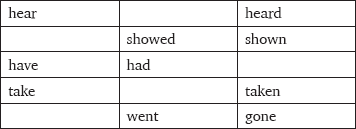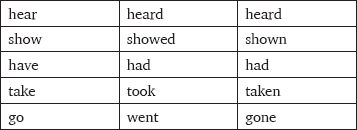The Princess of Canterbury
In the old days, when there were more than one king in this country, one of them was king of Canterbury. He had an only daughter, wise, fair, beautiful, and unmarried.
The king had it proclaimed that whoever would watch one night with his daughter and neither sleep nor doze at the time, should have her the next day in marriage. But if he did not stay awake, he should lose his head.
Such bargains were not uncommon in those days. Many knights did their best, but failed and lost their lives.
Now a young shepherd, named John, grazing his flock near the road, said to his master, “Sir, I see many gentlemen ride to the court at Canterbury, but I never see them return again.”
“Shepherd,” said his master, “I know not how you should, for they try to watch with the king’s daughter, and all who fail lose their heads.”
“Well,” said the shepherd, “I’ll try my worth, folly or luck; so now for a king’s daughter, or a headless shepherd!”
And taking his bottle and bag, he trudged to the court to try his fortune. On his way he had to cross a river. He pulled off his shoes and stockings, and while he was passing over he observed several pretty fish bobbing against his feet. He caught some and put them into his pocket. When he reached the palace, he knocked at the gate loudly with his shepherd’s staff.
As soon as he said why he was visiting, he was taken to a hall where the king’s daughter sat ready, prepared to receive her lovers. He was placed in a luxurious chair, and rich wines and spices were set before him, and all sorts of delicate meals. The shepherd was unused to such fare, and ate and drank plentifully, so that he was nearly dozing before midnight.
“Shepherd,” said the lady, “I have caught you sleeping!”
“No, sweet ally, I was busy fishing.”
“Fishing?” said the princess in surprise. “No, shepherd, there is no fish-pond in the hall.”
“No matter that, I have been fishing in my pocket, and have just caught one.”
‘‘Oh my!” said she. “Let me see it.”
The shepherd cleverly drew a fish out of his pocket and showed it to her, and she said it was the finest she had ever seen.
About half an hour afterwards, she said, “Shepherd, do you think you could get me one more?”
He replied, “Maybe,” and after a little while he brought out another. It was finer than the first, and the princess was so delighted that she gave him leave to go to sleep, and promised to excuse him to her father.
In the morning the princess told the king to his great astonishment that the shepherd must not be beheaded, for he had been fishing in the hall all night. The shepherd agreed.
But when the king heard how the shepherd had caught such beautiful fish out of his pocket, he asked him to catch one in his own royal pocket.
The shepherd agreed, bid the king lie down, and pretended to fish in his pocket while he had another fish hidden and ready in his hand. At last he gave the king a prick with a needle, held up the fish, and showed it to the king.
And even though the king did not delight in such a fishing method, nevertheless the princess and shepherd were united the same day and lived for many years together.
Упражнения
1. Выберите правильный вариант:
1. Taking his bead, he trudged to the court to try his fortune.
2. Taking his bottle and bag, he trudged to the court to try his fortune.
3. Taking his sheep, he trudged to the court to try his fortune.
4. Taking his children, he trudged to the court to try his fortune.
2. Where did he put several pretty fish?
1. He put them into his bag.
2. He put them into his socks.
3. He put them into his pocket.
4. He put them into his mouth.
3. Who is a shepherd?
1. a person who tends, herds, feeds, or guards herds of sheep
2. a person who works with natural wood
3. a person who produces musical sounds with the voice
4. an individual who owns or runs a shop
4. Why was the shepherd nearly dozing before midnight?
1. Because he was working hard.
2. Because he liked to sleep.
3. Because there were some nice beds in the hall.
4. Because he had not slept for a long time.
5. sweet ally = _____________
1. my brother
2. my dear
3. good food
4. candy and sugar
6. What is a fish pond?
1. a natural watercourse, flowing towards an ocean
2. the body of salty water
3. a part of the ocean
4. a pond that is stocked with fish
7. Выберите правильный вариант:
1. I have been fished in my pocket.
2. I have been fishing in my pocket.
3. I have fishing in my pocket.
4. I been fishing in my pocket.
8. What does it mean, “she gave him leave to go to sleep”?
1. she disturbed his sleep
2. he was dreaming about her
3. she refused to marry him
4. he asked her where he could sleep
9. Выберите правильный вариант:
1. The shepherd bidden the king lie down.
2. The shepherd bid the king lay down.
3. The shepherd bid the king lie down.
4. The shepherd was bidding the king lie down.
10. Выберите нужный глагол:
The shepherd _____________ the king a prick with a needle.
1. gave
2. made
3. took
4. put
11. Выберите нужные глаголы:
Shepherd, do you _____________ you _____________ get me one more?
1. thought, could
2. can, thought
3. think, could
4. think, will
12. Выберите нужный предлог:
He pulled _____________ his shoes and stockings.
1. on
2. out
3. of
4. off
13. Ответьте на вопросы:
1. How many persons are mentioned in the story?
2. What is the name of the shepherd?
3. What have you learned about the fishing?
4. What do you like and what don’t you like in the story?
5. What would you do if you were the main character of the story?
6. What is the end of the story?
7. Retell the story.
14. Заполните таблицу:

ОТВЕТЫ:
1. Taking his bottle and bag, he trudged to the court to try his fortune.
2. He put them into his pocket.
3. a person who tends, herds, feeds, or guards herds of sheep
4. Because he was unused to such fare.
5. sweet ally = my dear
6. a pond that is stocked with fish
7. I have been fishing in my pocket.
8. she allowed him to sleep
9. The shepherd bid the king lie down.
10. gave: The shepherd gave the king a prick with a needle.
11. think, could: Shepherd, do you think you could get me one more?
12. He pulled off his shoes and stockings.
14.

Lady Godiva
Some 900 years ago an extraordinary occurrence took place on Market Day in the English midlands town of Coventry.
Lady Godiva was the wife of Earl Leofric of Mercia, one of the most powerful men in England. Earl Leofric was one of the all-powerful lords who ruled England under the Danish King Canute. Lady Godiva was a wealthy and powerful woman. Lady Godiva was a rich landowner in her own right and one of her most valuable properties was Coventry.
Leofric was a tyrant, he tyrannised the Church and did not hold the same religious convictions as his wife.
The Earl’s taxes were very high, and people in Coventry was very upset about it. So the people were burdened terribly by taxes. Lady Godiva took pity on the people of Coventry, who were suffering grievously under her husband’s oppressive taxation. Lady Godiva begged her husband to lower the taxes many times, but he never agreed to. Lady Godiva appealed again and again to her husband, who obstinately refused to remit the tolls.
In order to arrange for tax relief, she needled her husband Leofric at every opportunity until one day he made her a rash promise. Finally, the Earl told Lady Godiva that if she rode through the streets completely naked, he would grant her request and lower the taxes:
“Mount your horse, and ride naked, before all the people, through the market of the town, from one end to the other, and on your return you shall have your request.”
Clearly Leofric meant it as a joke for he considered his wife to be practically a religious woman. The very idea that Godiva would agree to his challenge took him completely by surprise. He was quite sure that his demure, modest wife would never do such a thing.
But Godiva thought that her nudity would be interpreted as a sign of her humility and repentance before God. She was not ashamed of her nudity. On Leofric’s words Godiva replied:
“But will you give me permission, if I am willing to do it?”
“I will,” said he.
So great was Godiva’s compassion for the people of Coventry that she overcame her horror of doing this. The Countess sent a message through town that told everyone to close their shutters and stay indoors. Then she loosed her hair and let down her tresses, which covered the whole of her body like a veil, and then mounting her horse and attended by two knights, she rode through the market-place, without being seen, except her fair legs. So Godiva rode through town only clothed by her hair. She rode through the silent streets unseen by the people, who had obeyed her command because of their respect for her.
When she had completed the journey, she returned with gladness to her astonished husband, and obtained of him what she had asked. The Earl gave in and lowered the taxes of the town: he freed the town of Coventry and its inhabitants from the service, and confirmed what he had done by a charter.
However, only one man was unable to resist the temptation to peep at the Countess. It was a tailor named Tom who drilled a hole through his shutters, so that he might see Godiva pass. He caught a glimpse of Lady Godiva, and before he could satisfy his gaze he was struck blind. He was blinded by the wrath of Heaven. This is where the phrase “Peeping Tom” for a voyeur comes from. Tom’s nickname has become synonymous with pervert.
Leofric was forced to pretend the whole thing was a miracle, which in a way it was, since almost no one did see her nudity. But the worst thing about this was that he had to grant the tax break.
Lady Godiva, as Countess of Mercia, had personal charge over the good people of Coventry. Her name Godiva is the Latin form of the Saxon name Godgifu or Godgyfu, meaning God’s gift. There were many celebrations to remember Lady Godiva’s courage. A pageant is held annually in Coventry to re-enact Lady Godiva’s original route through the town.

